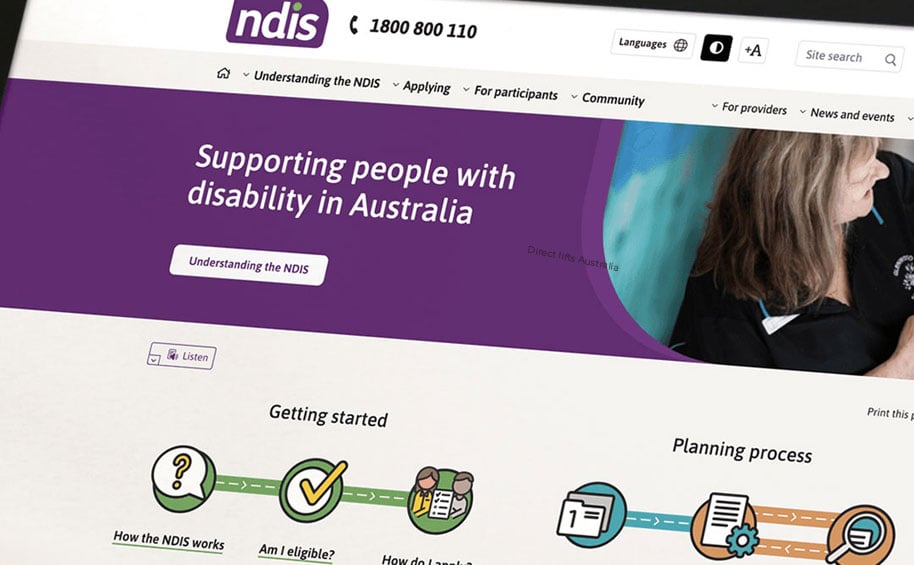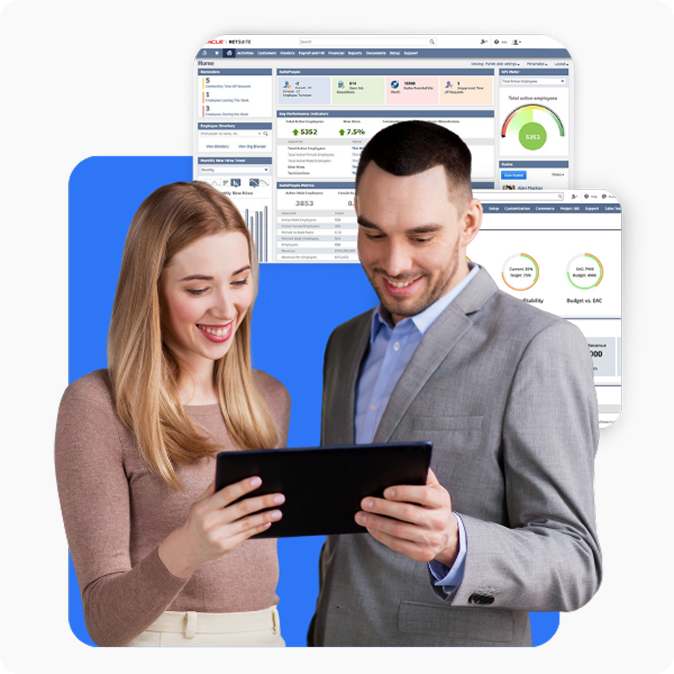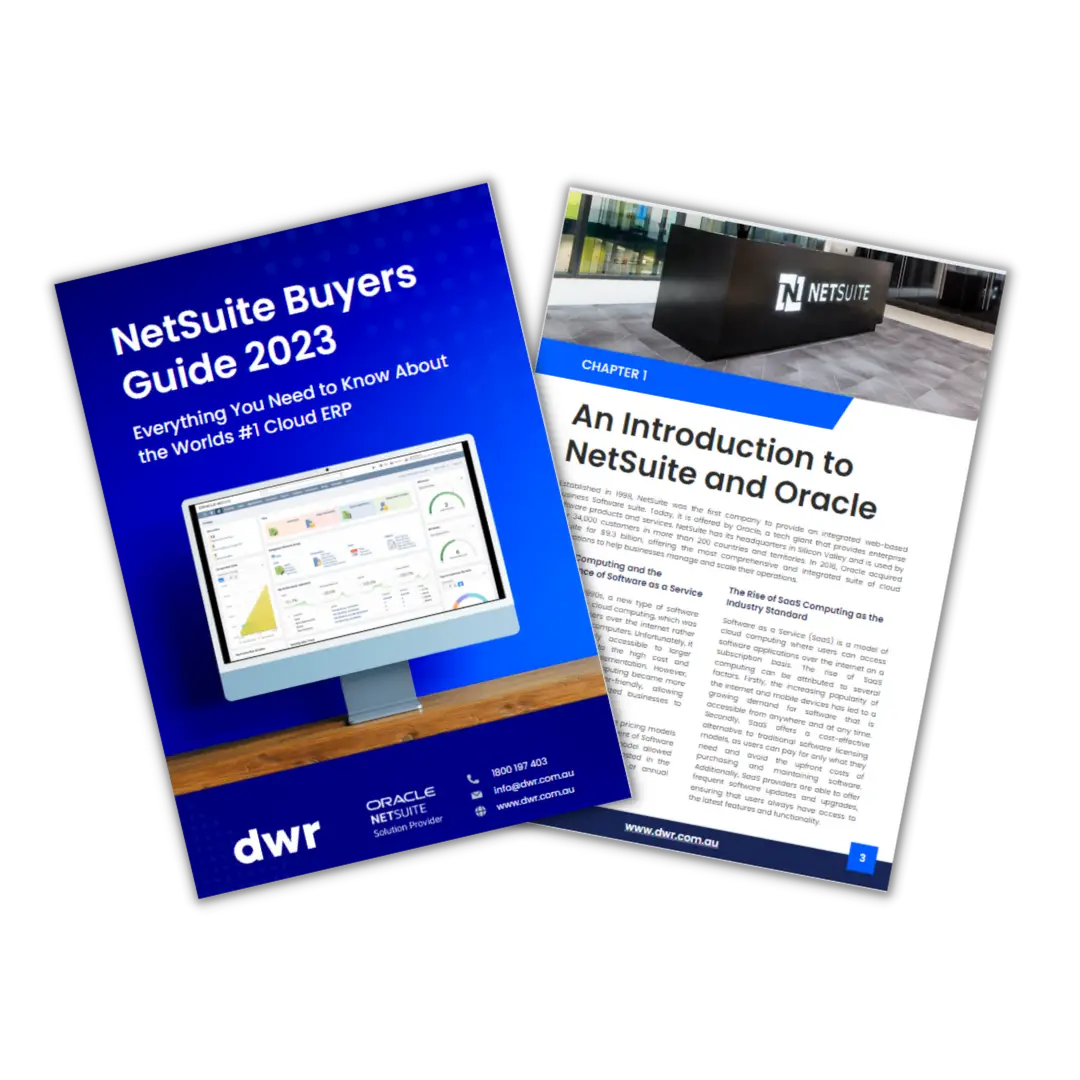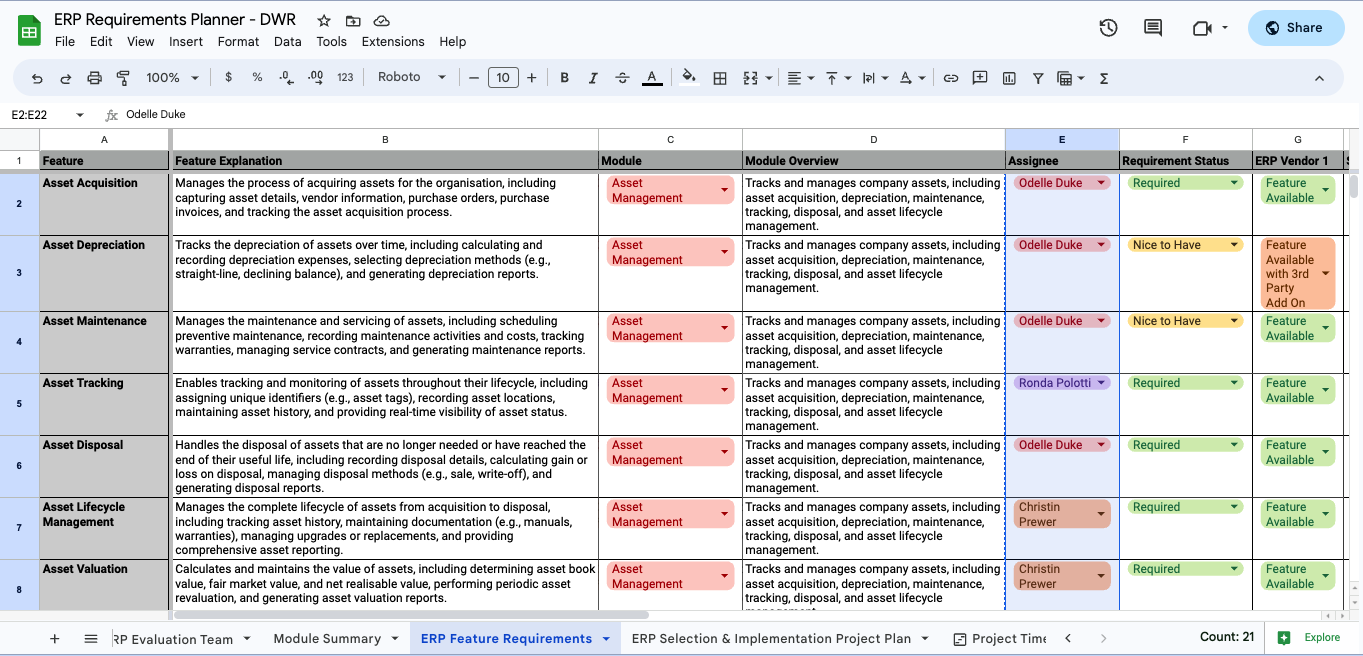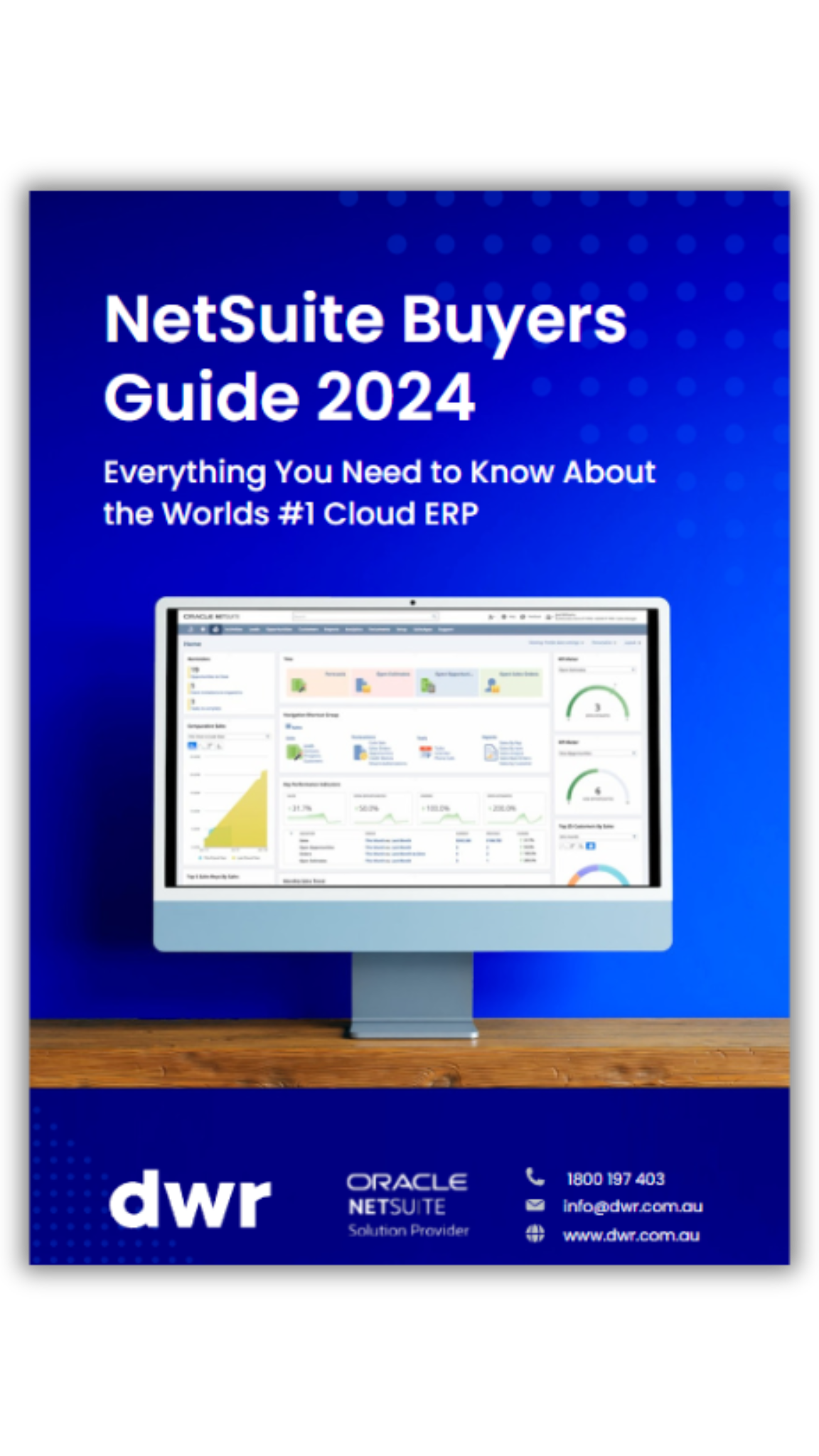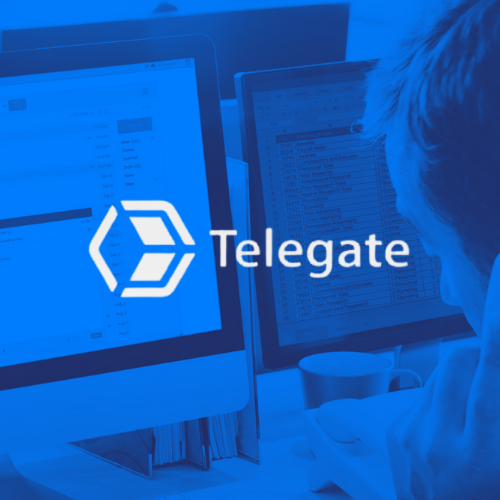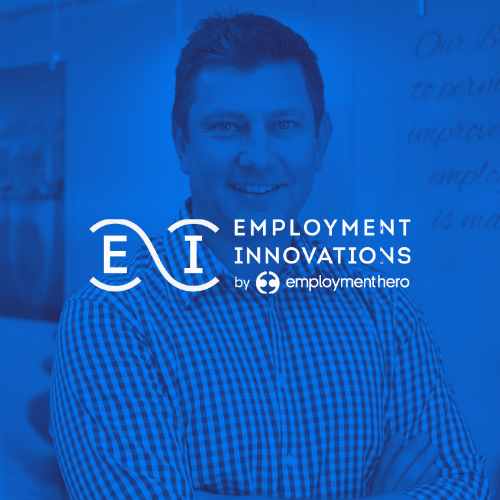Since the beginning of 2024, ERP software developments have been released at an unprecedented rate, driven by technological advancements and changing business needs.According to recent market research, the global ERP software market is projected to reach $78.40 billion by 2026, growing at a CAGR of 10.2% from 2019 to 2026. This substantial growth reflects the increasing adoption of ERP systems across industries, with an estimated 81% of organisations either in the process of implementing ERP or have completed implementation.
The Rise of the Intelligent ERP: AI's Impact on ERP Trends in 2024
Artificial Intelligence (AI) and machine learning are revolutionising ERP systems, transforming them from mere data repositories into intelligent, predictive powerhouses. A recent survey revealed that 64% of CFOs identified AI and machine learning as the most impactful technologies for their organisations.This enthusiasm stems from AI's ability to analyse vast amounts of data, uncover hidden patterns, and provide actionable insights. For instance, manufacturing giant Siemens has implemented AI-powered ERP systems that predict equipment failures, reducing downtime by 20% and maintenance costs by 15%.
Key AI-Driven Features in Modern ERP Systems
Intelligent Automation
One of the most significant changes in ERP software in 2024 is the rise of intelligent automation. AI-powered bots and virtual assistants are taking over repetitive tasks, freeing up human employees to focus on higher-value activities. For example, AI can automate invoice processing, expense approvals, and customer service inquiries, significantly reducing manual effort and improving accuracy.However, AI-driven process automation goes beyond simple task automation. It can optimise complex workflows, identify bottlenecks, and suggest improvements, leading to increased efficiency and cost savings. Businesses that embrace intelligent automation are not only streamlining their operations but also gaining a competitive advantage in the market.
Predictive Analytics
Traditionally, ERP systems have focused on recording and reporting past transactions. In 2024, AI is transforming ERP from a historical record-keeper into a forward-looking oracle. Predictive analytics leverages AI to predict future events based on historical data and real-time insights.As an example, AI can predict customer churn, identify potential supply chain disruptions, and anticipate equipment maintenance needs. By having this foresight, businesses can take proactive measures to mitigate risks, seize opportunities, and optimise their operations.
Short on time? Download this article to read later or share with a colleague.
Enterprise Resource Planning Software: ERP Trends 2024
Download Here!
AI Data Analytics
AI-powered ERP systems don't just provide data; they turn it into actionable intelligence. Interactive dashboards and visualisations present complex data in a user-friendly format, enabling business leaders to make informed decisions quickly.Furthermore, AI can generate personalised recommendations and insights based on individual user roles and preferences. This means that sales managers, finance directors, and supply chain managers can all access the specific information they need to make the best decisions for their respective departments.
More Granular End-User Personalisation
One of the most significant ways that AI and ML are impacting ERP systems is by automating tasks that were previously performed manually. This can free up employees to focus on more strategic tasks, leading to increased productivity and efficiency. For example, AI-powered chatbots can help automate customer service inquiries, freeing up human agents to focus on more complex issues.AI and ML are also being used to personalise user experiences within ERP systems. By understanding each user's unique needs and preferences, AI-powered systems can tailor the interface and functionality of the ERP system to each user. This can make it easier for users to find the information they need and complete their tasks quickly and efficiently.
Recommendation Engines
AI-powered recommendation engines are revolutionising how users interact with digital content and e-commerce platforms. By leveraging advanced machine learning algorithms and data analysis techniques, these engines can provide users with highly personalised and relevant recommendations, enhancing their overall user experience and satisfaction.One of the key benefits of AI-powered recommendation engines is their ability to understand and adapt to individual user preferences. By analysing a user's past behaviour, such as their purchase history, browsing habits, and online interactions, the engine can create a unique profile of their interests and preferences. This allows the engine to generate personalised recommendations that are tailored to each user's specific needs and desires.For example, in the e-commerce context, an AI-powered recommendation engine can suggest products or services that are similar to those a customer has previously purchased or viewed. This can help customers discover new products that they might be interested in, while also streamlining the shopping process by eliminating the need for extensive searching. Additionally, recommendation engines can provide personalised recommendations for movies, music, books, and other forms of entertainment, helping users discover new content that they might enjoy.Another advantage of AI-powered recommendation engines is their ability to identify patterns and trends in user data. By analysing large volumes of data, the engine can detect hidden connections and relationships that might not be immediately apparent to human users. This allows the engine to make recommendations that are both relevant and unexpected, helping users to explore new areas of interest and discover new products or services that they might not have otherwise encountered.
Natural Language Processing (NLP)
Natural Language Processing (NLP) is a subfield of artificial intelligence (AI) that focuses on enabling computers to understand and process human language. It involves tasks such as understanding the meaning behind words and phrases, extracting information from text, and generating human-like text. NLP enables computers to interact with humans in a more natural and intuitive way, as they can interpret and respond to human language.One of NLP's main applications is developing chatbots and virtual assistants. These systems leverage NLP techniques to understand user queries and provide relevant information or services. For instance, chatbots can help customers find information about products or services, place orders, and resolve customer support issues.NLP also plays a crucial role in machine translation, enabling computers to translate text from one language to another while preserving its meaning and context. This technology is particularly useful for tasks such as translating documents, websites, and real-time communication.NLP is a rapidly evolving field, with new advancements constantly being made. As NLP technology continues to improve, we can expect to see even more sophisticated and intelligent applications in the future.
Machine learning (ML)
Machine learning (ML) algorithms have revolutionised how companies analyse data and personalise user experiences. With their ability to identify patterns and extract insights from vast amounts of data, ML algorithms offer a powerful tool for enhancing ERP systems. Here's how ML algorithms can be leveraged to improve the user experience within an ERP system:
Anomaly Detection
ML algorithms can be used to detect anomalies and outliers in data. This is particularly useful in identifying fraudulent transactions, detecting suspicious activities, and monitoring system performance. By promptly flagging anomalies, ML algorithms help businesses mitigate risks, ensure data integrity, and maintain system stability.
Sentiment Analysis
ML algorithms can analyse text data, such as customer reviews, social media comments, and support tickets, to gauge user sentiment. This information can be used to identify areas of improvement, enhance product or service offerings, and build stronger customer relationships.By leveraging ML algorithms, businesses can transform their ERP systems into intelligent and adaptive tools that continuously learn and adapt to user needs. This results in a more personalised, efficient, and engaging user experience, ultimately driving higher productivity, improved decision-making, and increased customer satisfaction.
Integration of Blockchain Technology in ERP
The integration of blockchain technology into Enterprise Resource Planning (ERP) systems has the potential to revolutionise various aspects of business operations and supply chain management.
Enhanced Data Security
Blockchain's inherent security features, such as decentralised data storage and cryptographic hashing, can significantly enhance the security of ERP systems. This can help protect sensitive business data from unauthorised access, data breaches, and cyberattacks. Blockchain's utilisation of cryptography also ensures the security of data, making it highly resistant to tampering or corruption. The decentralised nature of blockchain, where there is no single point of failure, further enhances its resilience against hacking and data breaches. Additionally, data stored on a blockchain is immutable, meaning it cannot be altered or deleted without leaving a trace, thereby maintaining a high level of integrity and authenticity.
Improved Traceability and Transparency
By leveraging blockchain's immutable ledger, businesses can create a single source of truth for their ERP data. This enables end-to-end traceability of transactions, materials, and assets throughout the supply chain, providing greater visibility and transparency for all stakeholders.Blockchain transactions are recorded on a public ledger, ensuring transparency and accountability. Anyone can view the ledger, allowing them to verify the validity of transactions and trace the history of assets. This transparency fosters trust and confidence in the system, as all transactions are visible to everyone on the network, making it difficult to manipulate or falsify records.
Automated Smart Contracts
Smart contracts are self-executing agreements written in code and stored on the blockchain. They automatically execute when predefined conditions are met, eliminating the need for intermediaries and reducing transaction costs. Smart contracts have a wide range of applications, including automating supply chain management, facilitating secure voting systems, and creating decentralised financial (DeFi) applications.Blockchain-based smart contracts can be integrated with ERP systems to automate workflows, enforce business rules, and execute transactions automatically. This can streamline processes, reduce manual intervention, and improve operational efficiency.
Streamlined Financial Transactions
Blockchain's ability to process transactions securely and quickly can significantly streamline financial transactions within ERP systems. This can reduce costs, improve efficiency, and enhance cash flow management. Traditionally, financial processes within ERP systems involve multiple intermediaries, manual reconciliation, and potential delays. Blockchain eliminates these inefficiencies by creating a shared, tamper-proof record of transactions. This means that payments, invoices, and other financial documents can be processed and verified automatically, reducing the need for manual intervention and minimising errors.
Challenges in Implementing Blockchain Technology in ERP Systems
Integration Complexity
One of the primary challenges in implementing blockchain technology in ERP systems is the complexity of integration. Blockchain operates on a decentralised and distributed ledger system, which may not align seamlessly with traditional centralised ERP architectures. Ensuring interoperability between blockchain networks and ERP systems requires careful planning and technical expertise to overcome integration hurdles.
Data Privacy and Security Concerns
Blockchain technology offers enhanced security through its cryptographic features and immutability. However, integrating blockchain with ERP systems raises concerns about data privacy and security. As ERP systems store sensitive business data, ensuring that this information remains secure on a blockchain network is crucial. Addressing privacy regulations and implementing robust security measures are essential to safeguard data integrity and confidentiality.
Scalability and Performance
Scalability and performance are critical considerations when integrating blockchain technology with ERP systems. Blockchain networks, especially public ones, face challenges related to transaction speed, throughput, and network congestion. Ensuring that blockchain transactions do not hamper the performance of ERP processes is essential for maintaining operational efficiency. Implementing solutions like off-chain scaling techniques or selecting appropriate blockchain consensus mechanisms can help address scalability issues.
Regulatory Compliance
Navigating regulatory frameworks and compliance requirements is another challenge in implementing blockchain technology in ERP systems. Different industries have specific regulations governing data management, privacy, and transparency. Ensuring that blockchain implementations follow relevant laws and standards is essential to avoid legal risks and regulatory penalties. Collaborating with legal experts and regulators can help organisations navigate compliance challenges effectively.
Skill Gap and Training Needs
Integrating blockchain technology into ERP systems requires specialised skills and expertise in blockchain development, smart contract programming, and decentralised applications. Addressing the skill gap within the organisation and providing training programs for IT staff are essential to ensure successful blockchain-ERP integration. Investing in talent development and partnering with blockchain experts can help organisations overcome skill-related challenges and drive innovation in ERP systems.By addressing these challenges proactively and leveraging the benefits of blockchain technology, organisations can enhance the transparency, security, and efficiency of their ERP systems, paving the way for digital transformation and competitive advantage.
The Wrap Up
The ERP landscape in 2024 is marked by significant developments and trends that are reshaping how businesses operate. From cloud-based solutions and AI integration to advanced analytics and blockchain technology, enterprises have a wealth of options to enhance their operations, drive efficiency, and gain a competitive edge.As we move forward, it is crucial for businesses to embrace these advancements and leverage the power of ERP systems to adapt to the ever-changing demands of the digital age. By selecting the right ERP solution, investing in skilled resources, and fostering a culture of continuous innovation, organisations can harness the full potential of ERP and transform their operations to achieve sustainable growth and success in the years to come.
.svg)



.avif)
















